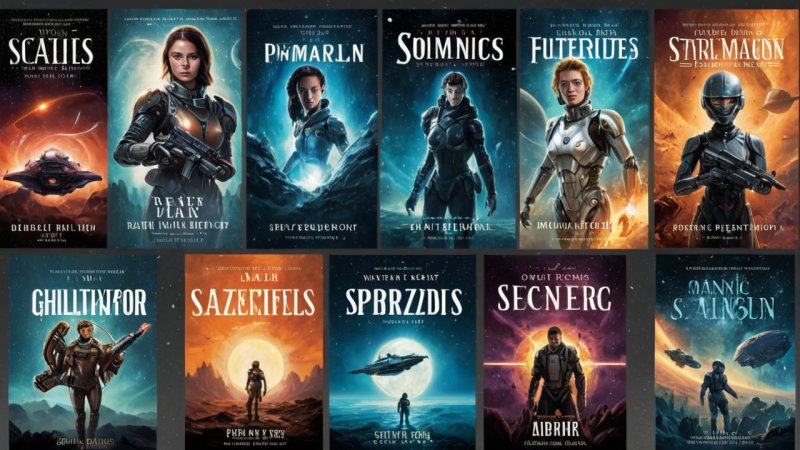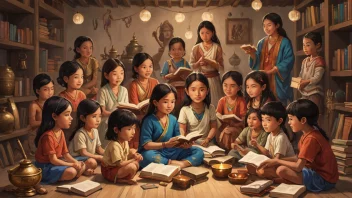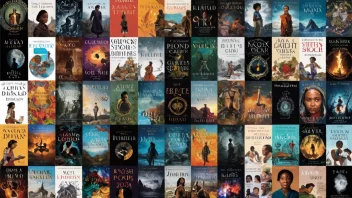Science fiction is a genre that has the unique ability to transport readers into realms of imagination that challenge the very fabric of reality. It serves as a mirror to our own world, reflecting our fears, hopes, and aspirations through speculative narratives. For those looking to expand their horizons, diving into classic science fiction literature can offer profound insights and stimulate critical thinking. Here, we explore some of the most impactful works that have not only shaped the genre but also continue to inspire readers today.
One of the most pivotal works in science fiction history is H.G. Wells' 'The War of the Worlds'. This groundbreaking novel depicts an alien invasion that serves as a commentary on imperialism and human vulnerability. Wells' vivid imagery and gripping storytelling compel readers to confront the potential consequences of humanity’s arrogance in the face of the unknown, encouraging reflection on our place in the cosmos.
Arthur C. Clarke’s '2001: A Space Odyssey' is another landmark text that intertwines the evolution of humanity with the possibilities of space exploration. The novel, which expanded upon the film of the same name, presents themes of artificial intelligence and the unknown. Clarke's exploration of the monolith as a symbol of human progress invites readers to ponder the future of technology and its implications for our species.
Ray Bradbury's 'Fahrenheit 451' remains disturbingly relevant in an age of information overload and censorship. Set in a dystopian future where books are banned, Bradbury's narrative serves as a cautionary tale about the dangers of losing intellectual freedom. The novel urges readers to appreciate literature and the power of critical thought, emphasizing the importance of preserving our cultural heritage.
Another classic, 'Brave New World' by Aldous Huxley, presents a dystopian society characterized by technological advancements and the suppression of individuality. Huxley’s exploration of consumerism, conformity, and the loss of personal freedom challenges readers to consider the cost of progress and the ethical dilemmas that accompany it. This thought-provoking work continues to resonate in a world increasingly driven by technology and societal expectations.
Philip K. Dick’s 'The Man in the High Castle' offers a chilling alternate history where the Axis powers won World War II. Through its exploration of reality, identity, and the nature of truth, the novel invites readers to reflect on the fragility of democracy and the impact of totalitarianism. Dick's ability to intertwine complex philosophical questions within a gripping narrative makes this book a timeless classic.
In 'The Left Hand of Darkness', Ursula K. Le Guin breaks new ground by exploring themes of gender and sexuality in a unique alien society. Le Guin's narrative challenges conventional norms and encourages readers to question their own societal constructs. By presenting a world where gender is fluid, she fosters a deeper understanding of identity and the human experience.
As we traverse these literary landscapes, we encounter works like 'The Stars My Destination' by Alfred Bester, which presents a story of revenge and transformation set in a future where teleportation is commonplace. Bester's innovative narrative style and exploration of human ambition make this book a thrilling read that captivates the imagination.
In conclusion, classic science fiction literature is a treasure trove of ideas that can expand our minds and challenge our perceptions. These works encourage introspection about our societal structures, technological advancements, and the essence of humanity itself. By immersing ourselves in these narratives, we not only enjoy thrilling stories but also engage in a dialogue about the future and our role within it. Whether you are a seasoned reader or new to the genre, these classics offer a wealth of knowledge and inspiration for all who dare to explore.
Expand Your Horizons with Sci-Fi Classics
Explore the profound insights and critical themes presented in classic science fiction literature that challenge our understanding of reality.






